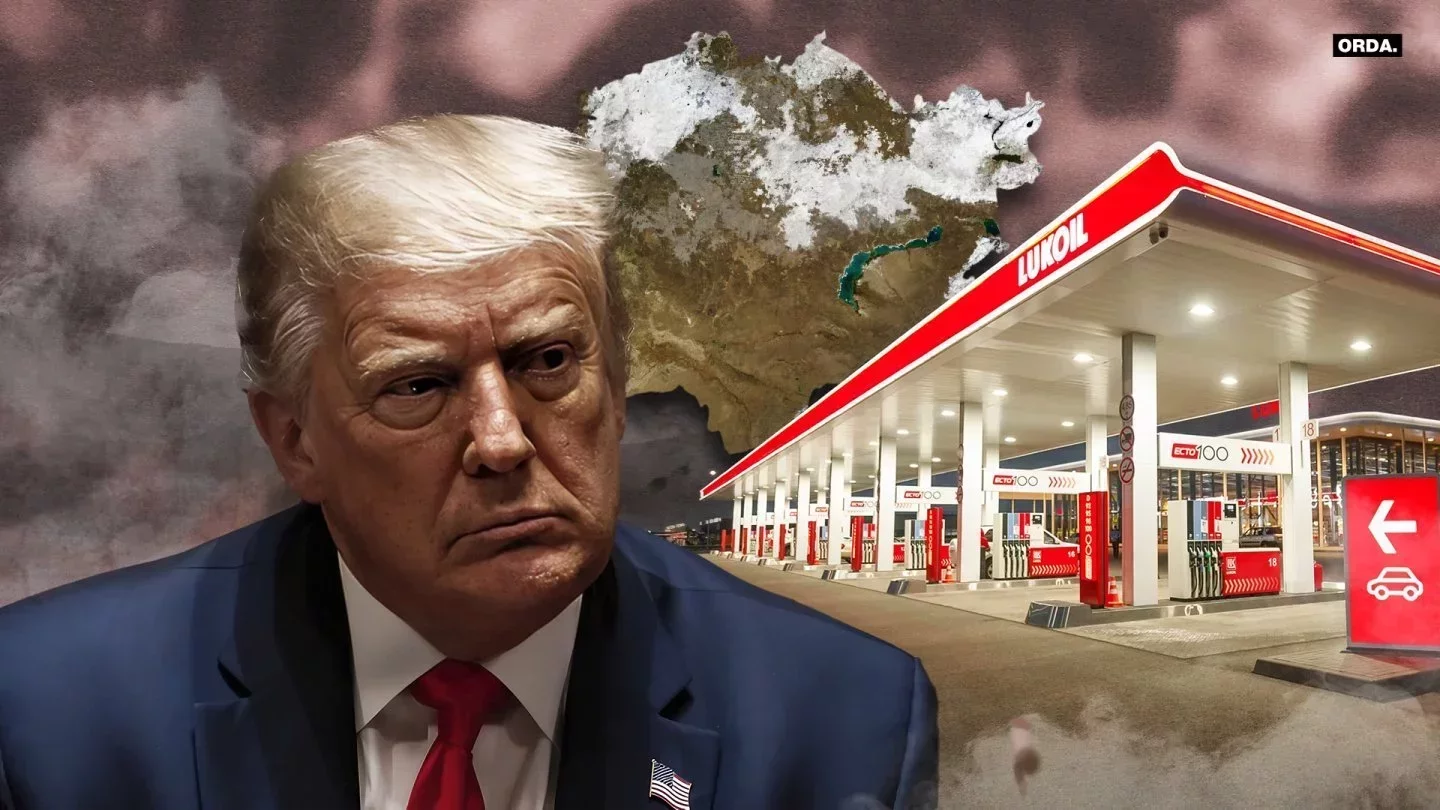Lukoil Decides to Sell Foreign Assets Following U.S. and U.K. Sanctions
 Photo: Orda collage
Photo: Orda collage
Russian oil company Lukoil is moving to sell off its international assets after new restrictive measures were imposed on the firm and its subsidiaries, Orda.kz reports.
Due to the introduction of restrictive measures by a number of countries against the company and its subsidiaries, a decision has been made to sell its international assets. The company has already begun considering offers from potential buyers,
Lukoil said in a statement.
The U.S. imposed sanctions on October 22, adding Lukoil, Rosneft, and 34 of their subsidiaries to the blacklist.
The Treasury Department said the restrictions were introduced because of Moscow’s refusal to end the war in Ukraine. Treasury Secretary Scott Bessent called Lukoil part of the “Kremlin war machine.”
On October 15, the United Kingdom introduced similar sanctions.
Lukoil operates in Kazakhstan, Azerbaijan, Uzbekistan, Iraq, Egypt, Cameroon, Nigeria, Ghana, Mexico, the United Arab Emirates, and the Republic of Congo, and owns refineries in Bulgaria, Romania, and the Netherlands.
In Kazakhstan, the company is involved in developing the Kalamkas-Sea and Khazar fields and holds a 12.5% stake in the Caspian Pipeline Consortium (CPC) — the main export route for Kazakhstan's oil. Last year, Lukoil announced the launch of its own refueling station network in Kazakhstan.
Expert Opinion
Financial analyst Rasul Rysmambetov said the current pressure on Russian assets could open opportunities for Kazakhstan:
Sanctions risks on Russian assets within Kazakhstan’s reach could be an opportunity for expansion. Neither Russian players nor those initiating the sanctions would object. KMG’s access zone also includes the Shah Deniz project, where Lukoil has a stake and debts to Western banks due in 2025 ($215 million) and 2027 ($250 million). Lukoil Overseas Uzbekistan Ltd. holds a gas PSA in Uzbekistan with a $660 million repayment due in April 2028. There’s also the West Qurna project in Iraq and the Lukoil Neftokhim Burgas refinery in Bulgaria — assets that could be acquired at a discount, Rysmambetov said.
Earlier, U.S. President Donald Trump canceled a planned meeting with Russian President Vladimir Putin and announced sanctions against Lukoil and Rosneft, saying Moscow had shown no interest in ending the war.
The U.S. Treasury clarified that the restrictions also apply to foreign companies holding more than 50% of shares in sanctioned Russian assets.
Original Author: Ruslan Loginov
Latest news
- Tokayev Meets U.S. Ambassador Stufft, Discusses Board of Peace Cooperation
- Mangystau Launches AI-Assisted School Monitoring to Prevent Teen Suicidal Behavior
- Kazakhstan to Supply UK With Critical Minerals
- AI Faculties for Educators to Open in Kazakhstan: What Other Changes Are Coming to the Education Sector
- There Are Medals — But Not Enough Ice: What’s Happening to Figure Skating in Kazakhstan
- Is Kazakhstan’s Nuclear Power Plant Project at Risk After New UK Sanctions? Rosatom Responds
- Prosecutor General’s Office Suspends Extradition of Navalny Ex-Staffer Detained in Almaty
- Former EBRD Executive Jürgen Rigterink Elected as New Independent Director on Bank RBK’s Board of Directors
- Kazakhstan Near Bottom of Retirement Comfort Ranking
- Kazakhstan to Open New International Flights Across Asia, the Middle East and Europe
- Foreign Experts Paid 47 Times More Than Local Scientists in Kazakhstan
- Almaty Utility Services Clear Streets for Fourth Time After Continuous Snowfall
- The Deputy Calls for Checks on Kazakh Officials Named in Epstein Files
- Su-30SM Fighter Jet Crashes Near Karaganda
- School Smartphone Restrictions May Expand Beyond the Classroom
- US warns Ukraine against strikes affecting CPC oil exports
- Kazakhstan and Austria Agree on Readmission of Illegal Migrants
- Digital Rating for Military Commanders Proposed in Kazakhstan
- Smartphones and Nap Time: Ministry Proposes Easing Rules for Convicts
- Company Managing Russia’s CPC Stake Hit by UK Sanctions

